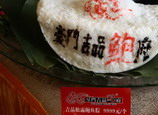
During the Northern Song Dynasty, Neo-Confucianism, which borrows some concepts and terminology from Taoism and Buddhism, became highly developed. Compared with the continental philosophy since Han Dynasty, Neo-Confucianism is more rational and critical and discusses the relationship between Heaven and humans, desire and morality. Many outstanding scholars, like Zhou Dunyi, Zhu Xi and Wang Yangming spread the Confucian way of thinking by teaching classical Confucian ideas at shuyuans. Thus, the ancient philosophy was reborn during this Neo-Confucian renaissance. The scholars believed through learning and education, people could better understand the ultimate laws of nature to achieve harmony between the individual and the universe.
During the Yuan Dynasty, during which China came under Mongolian rule, shuyuans became even more popular, maintaining their focus on philosophy carried over from the Song Dynasty. However, the golden age of the shuyuan declined during Ming Dynasty due to suppression by the government, since the scholars and students affected politics. In 1642, many scholars from Donglin Shuyuan were killed when they resisted government corruption.
During the Qing Dynasty, the last period of imperial rule in China, shuyuans were supported by the government, but also constrained. The Qing government directly supervised both public and private schools but also placed limits on what content could be taught to students.


















 Sick girl realizes dream on the stage
Sick girl realizes dream on the stage


![]()
